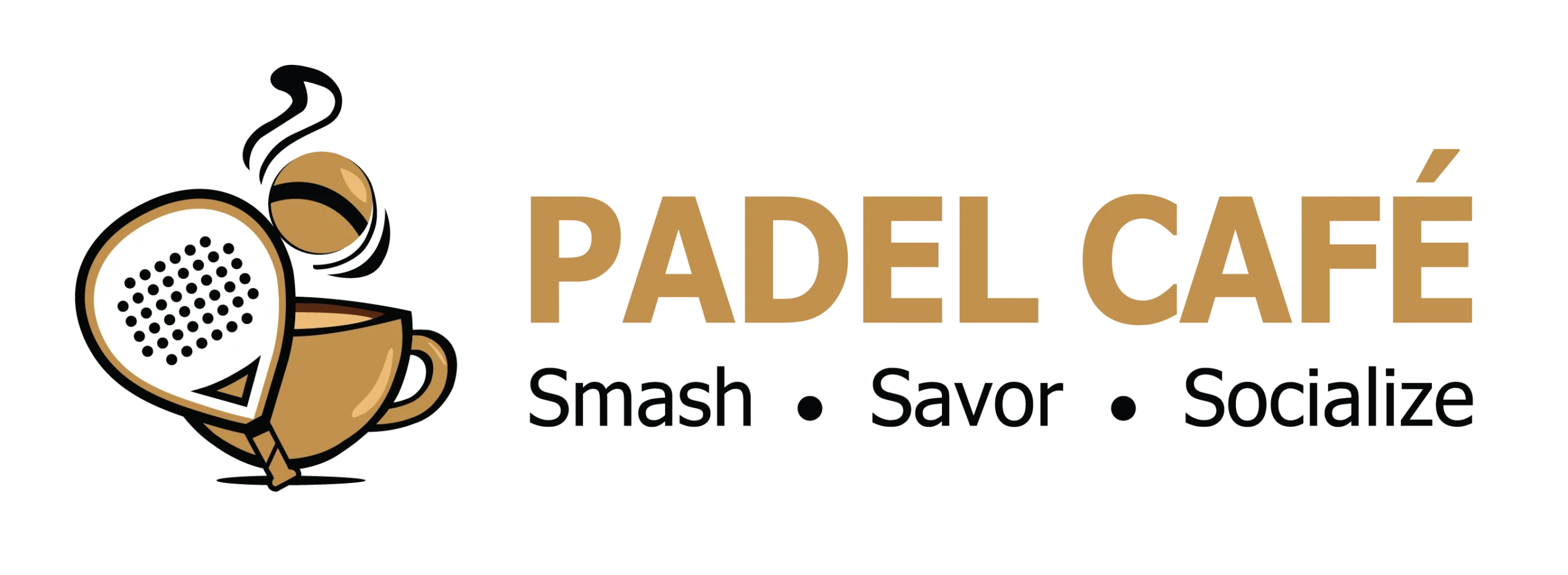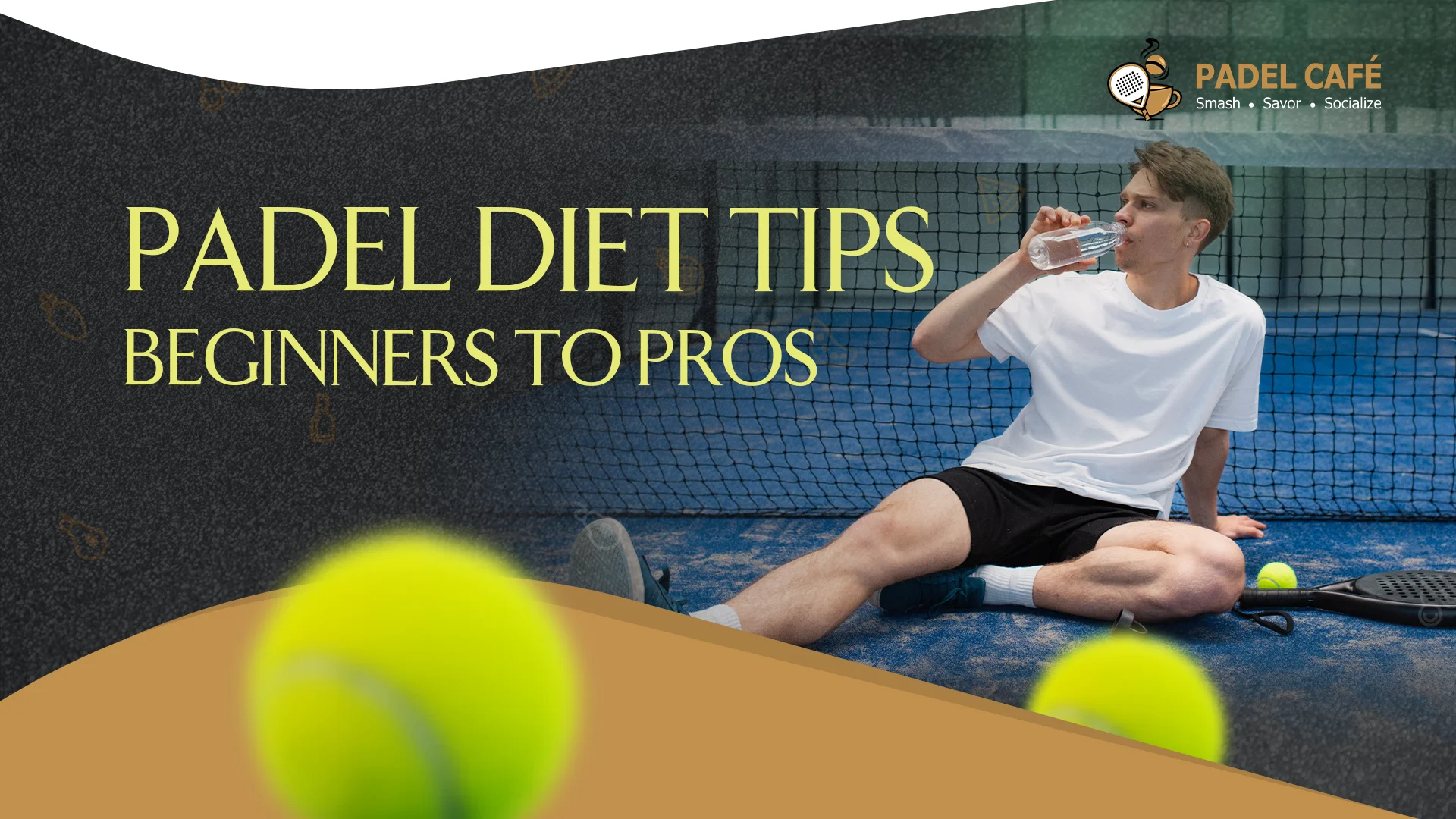“You Are What You Eat!”
A simple yet meaningful saying that stands true for all and in all circumstances. The importance of good nutrition can never be denied. It’s what keeps the body going, as it maintains your cognitive and body health. So, whether it’s for any simple walk or a professional sport, ensuring proper nutrition is just as important as any other requirement.
Padel, a globally popular sport, also demands good nutrition. The game involves three-dimensional court movements, as the court’s walls are a part of it. This game can also improve physical fitness (both cognitive and motor skills), which suggests the need for a proper nutritional guide for optimal court performance.
This article with walk you through the necessary considerations that can help you level up your strength and energy.
Foods Maximizing the Performance
It’s true that everybody’s nutritional requirements differ. However, there is a certain set of guidelines that every player must follow for a winning performance at the match. Since the macronutrients are the major energy-givers, so, let’s start with them:
Carbohydrates
Carbohydrates, and not fats, are the primary sources of energy required for a high-intensity workout. For athletes such as the Padel players, these carbs help build stamina, delay fatigue, and restore muscular strength. Sources include:
- Whole grains: oatmeal, whole-grain bread, brown rice.
- Fruits: apples, oranges, berries.
- Vegetables: carrots, sweet potatoes, corn.
- Energy bars: granola bars, honey-toasted coconut bars.
- Legumes: lentils, chickpeas, beans.
Proteins

Proteins can be said to be the building blocks of the body. Their consumption, after the match, helps reduce muscle soreness, promoting faster recovery, thus allowing athletes and players to train frequently. Good protein sources include:
- Animal-based protein: chicken, fish, lean beef.
- Plant-based proteins: tofu, nuts, beans.
- Dairy: milk, yogurt cheese.
Fats
Fats are best for low-intensity and endurance-based exercises, such as Padel Tennis. These give the body lasting energy for a good performance throughout the game. Good sources include:
- Nuts and seeds: walnuts, almonds, flax seeds, chia seeds.
- Fish: salmon, sprout
- Fruits: avocado and olives
Nutritional Demands of Padel
A smooth game calls for good player strength, and that comes from the intake of a balanced and nutritious diet. So, before moving on with our learning of the diet plans for padel athletes, let’s first understand this sport’s nutritional demands:
- Fueling for Endurance and Energy: Padel is a sport demanding sustained energy levels. Carbs, therefore, play a major role in this regard. For sustained energy during matches, players should consume complex carbohydrates, such as whole grains, fruits, and vegetables.
- Supporting Muscle Function and Recovery: Padel sports involve continuous court movements, whereby the muscles and joints suffer significant strain. Adequate protein intake can reduce this, supporting muscular function, repair, and growth. Foods such as beans, legumes, eggs, fish, dairy products, etc., should be a part of the players’ diet before and after the match.
- Hydration: Hydration is the key to replenishing the body’s lost electrolytes, mineral salts, and essential fluids. The constructed water balance helps keep the player’s body hydrated, preventing muscular cramping and speeding recovery. Drinking regularly is the key here. Players should consume hydration drinks at regular intervals for a hydrated body.
- Balancing Macro- and Micronutrients: Apart from the consumption of proteins and carbohydrates, fat consumption plays an equal role in ensuring sustained energy levels during the game.
Moving on, a nice balance of micronutrients, such as vitamins and minerals, is a must. This balance increases the body’s endurance and instills the energy levels in a player’s body that are essential for racket-based sports (like Padel).
Nutritional Diet Plans for Beginner and Pro Players
An optimized calorie intake benefits everyone, and a proper diet plan drives this optimization. Likewise, there are diet plans for both beginners and pro game players, allowing them to remain enthusiastic until the game’s end. Diet planning for pre and post game helps here.
Pre-Game Nutrition: Building Energy for Performance

What’s an athlete with low energy levels?
Pre-game nutrition is what helps boost the players’ stored energy levels for body-fueling later in the game.
A balanced meal containing carbs and proteins, and with some amounts of fats eaten 2-3 hours before the game, sufficiently elevates the glycogen levels, which later break down to glucose during the game.
Tip: A bowl of yogurt, a protein-rich smoothie, and some fruits and vegetables are perfect for reenergizing the players and hydrating the body before the match.
Post-Game Nutrition: Optimizing Recovery
Recovery from intense exercise is necessary, especially for Padel players, who get small breaks during matches. As exciting as the sport is, it does cause muscle soreness, cramps, and strains.
Post-match, all athletes should go for:
- A protein-rich diet (about 20-40 grams of protein) to recover from the high muscular strain and soreness.
- A carbohydrate intake helps replenish the glycogen levels, refueling and reenergizing the players’ bodies.
- Hydrating energy drinks and water intake for restoring electrolyte balance, overcoming exhaustion, and speeding up the recovery process.
Tip: Protein shake or glass of milk with nuts works well for the purpose.
Now, let’s further break down the recommended routine meals for this game’s player:
Breakfast

High-carb and protein-rich foods, such as:
- Omelet with whole wheat toast and fruit juice
- Oatmeal bowl with fruits and nuts
- Boiled Egg sandwich with vegetable of choice
- Protein Pancakes (add protein powder) with honey and butter or smoothies
Snack
Healthy snacks, rich in either proteins or carbohydrates, such as:
- Chocolate milk
- Fruit bowls or fruit salads
- Yogurt cups
- Light chicken sandwiches
Lunch
Commonly, for the player’s lunch, a protein-rich meal, followed by carbohydrates and a small amount of fats, works well. However, it also differs based on the tournament timings, such as:
- For an early afternoon match, players should have breakfast around 8:00 a.m. and lunch from 11:00 a.m. to noon. The main course could be anything, such as a grilled chicken sandwich, pasta, with some fruit. Dairy products can also complement the meal, keeping the body hydrated.
- For a late afternoon match, the suggested meals include a bowl of brown rice or whole wheat pasta with grilled chicken and veggies.
Note: A gap of 1-2 hours should be observed between the meals and the game to ensure proper metabolization.
Dinner
For a player’s dinner, any protein paired with a carbohydrate such as chicken and lentil/bean soup, fatty fish with whole wheat tortilla, or beans or chickpea salad is good enough to boost energy levels. Pairing the dinner with hydrating and fulfilling foods like Greek yogurt cups and milk can also help achieve rehydration.
The Key to Eating Right
As stated, no definite diet plan works for all. It varies according to a person’s figure and body needs. However, there are some key tips that every player should know and follow to ensure a competitive match every time they play.
- Players should avoid the intake of high-fat and high-sugar foods. Such edibles cause bloating and discomfort, conditions that a Padel player cannot afford to have during the play.
- High-fiber foods are also not recommended. Excessive fiber intake, and at inappropriate timings lead to gas formation, which can instill discomfort in the player before and during the match.
- Padel players should avoid intake of excessive protein powder portions per shake. While these do help with strength recovery, when consumed in excess amounts, they can lead to indigestion and discomfort — a condition undesired before, during, and after the practice sessions.
Final Words
As much as skill is needed to ensure an uninterrupted match, quality nutrition is equally important. Only when the body is properly nourished can the player enter the court with confidence and be a competitive opponent to the other players. Taking care of the body’s nutritional needs is, therefore, imperative.
There are padel courts in Lahore, like Padel Cafe, that do understand this, giving a cafe-like experience together with an exciting padel game. Players can easily reenergize through nutritious snacks and hydrating drinks and continue with the thrilling game.




0 Comments